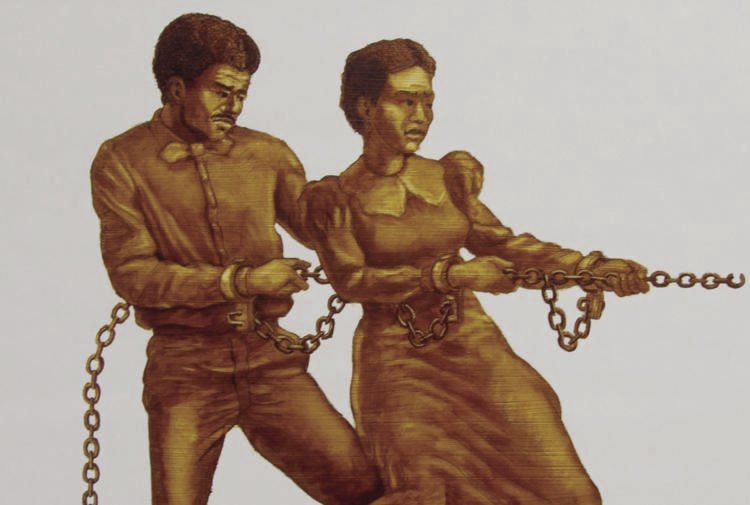Local organization pushes for Dred Scott monument
February 25, 2019
An effort to place a slavery-related monument next to a Confederate statue at the Lauderdale County Courthouse has run into opposition by the County Commission.
Project Say Something, a local organization, pitched the idea to place a monument of Dred and Harriet Scott in front of the Lauderdale County Courthouse August 2017. The monument would go next to the Confederate monument already in place.
According to their website, Project Say Something is dedicated to unifying, educating, healing and empowering communities in the mid-South to realize social justice through non-violent communication and direct action against racism, poverty and related forms of oppression. The organization began after the Ferguson riots in August 2014.
“It’s important to understand the history behind the Confederate monument,” said Founder and Executive Director Camille Bennett. “It’s an oppressive symbol.”
County Commission Chairman Danny Pettus said the courthouse is sticking with their current policy to not install new permanent monuments. He said the city moved the Confederate monument that is in place now from the last courthouse.
According to al.com, The Alabama Memorial Preservation Act of 2017 is a law prohibiting local governments from moving historical monuments on public property that have been in place for 40 years or more. The Confederate monument at the courthouse erected April 25, 1903.
“The policy isn’t written anywhere,” Pettus said. “It’s more of an understood policy. We do hope to have a written one by the end of March.”
Bennett said she felt disappointed when she was told a permanent monument would not be erected and felt there was not enough detail given around the decision.
“This isn’t so much about me as it is the generation after me,” she said. “We work with children to encourage, inspire and educate them. We don’t need to be satisfied with a small portion of history.”
According to britannica.com, the Supreme Court case Dred Scott v. John F.A. Sandford, commonly known as the Dred Scott Decision, occurred March 6, 1857. The (7-2) decision ruled a slave, who lived in a free state and territory (where slavery was prohibited) was not entitled to his freedom; that African-Americans were not and could not be citizens of the United States; and the Missouri Compromise, which declared free all territories west of Missouri and north of latitude 36 degrees and 30 minutes was unconstitutional.
A historical marker at North Pine Street and West Tennessee Street in Scott’s honor reads:
“Dred Scott, whose name is associated with the landmark U.S. Supreme Court Dred Scott Decision of 1857, was born in Virginia between 1795-1809. In 1818 he was in Madison County, Alabama. He came to Florence with the Peter Blow family in 1820. About 1827 the Peter Blow Inn was established at this site, Scott served as the hostler here until the Blows relocated to St. Louis, Missouri, in 1830. Afterwards, Scott was sold to Dr. John Emerson. It was under Emerson’s service that Scott based his legal fight for freedom that resulted in the Dred Scott Decision.”
Pettus said the County Commission will work with Project Say Something to place a temporary monument in Scott’s honor.
Bennett said they are working on the next steps, but are not ready to reveal anything yet.


